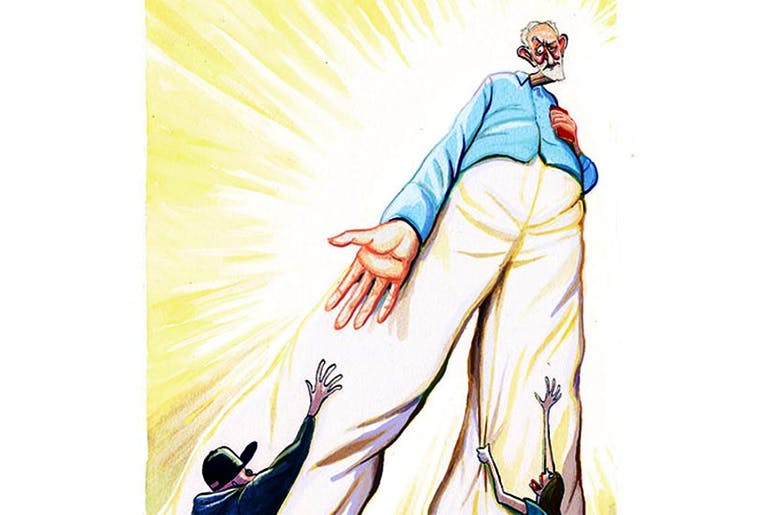The myth at the heart of the ‘Corbyn project’ is that it is a grassroots movement of enthusiastic young people. This group, so the theory goes, is disgusted by free markets and longs for industries to be nationalised and collectives of workers to seize control of the means of production. Books have even been written about how the ‘young’ have ‘created a new socialism.’ But if this is true, why does a poll today reveal that support for the newly-formed centrist Independent Group predominantly come from young people? Forty-seven per cent of 18-24 year olds approve of the creation of TIG, with just 14 per cent disapproving of it. This is strange behaviour from an age group we’re constantly told are supposed to be most rabidly in favour of Jeremy Corbyn. Listening to high-profile Corbynistas in their plentiful media appearances you would assume that the people most likely to back TIG are ageing Blairites and ‘centrists dads’. Far from it.
In fact, less than a third of older voters approve of the new group. This comes as little surprise when compared to other polling, which reveals that young people are among the most likely of any age group to say that “government taxes too much and spends too much on services” with the over 65s being the least likely to support that same statement. 18-24s are also the least likely to support the view that “government taxes too little and spends too little on services”, with just 22 per cent agreeing, ten points behind the over 65s. It is clear that there is more to young people’s dissatisfaction with Labour than Brexit equivocation.
Young people are the least likely to oppose introducing competition into government services, and the least likely to favour the government pursuing equality of outcome. Perhaps this explains why so many young people approve of a group that has also won approval from the IEA and the ASI for its favourable view of austerity and Osborne cuts, opposition to renationalisation, anti-tax hike, and pro-tuition fee positions.
In reality any meeting of the hard left looks more like a retirement home than a university seminar, even in London, where more young people live. So Corbynism is not a movement led by a generational shift in the way we view the world, but one driven by the same few hundred thousand people in the country who have always leant towards the left. The only difference is that now they are better organised and able to seize the infrastructure of an old established party thanks to an ill thought-out £3 membership scheme. To put Labour’s support into perspective, the party’s total membership is less than half the number of people who voted Green in 2015.
When it comes to age, there is little difference between the two main parties: the average Labour member is 53 years old, just four years younger than the average Tory member. Labour has a bigger membership so they do have more young members, but proportionately it’s not the young who are steering the ship. And it never has been. The discredited ‘youthquake’ argument has always been nothing more than a telegenic front for a project of old school Trotskyists. Membership aside, the turnout of young people in 2017 is estimated to be slightly lower than the number who turned out in the previous 2015 election.
It is true to say that the less than 50 per cent of young people who did decide to turn out overwhelmingly backed the Labour Party. However, the reason behind this convergence seems to be overwhelming social and not economic. Sir John Curtice’s assessment is that the reason more young people supported the Labour Party in 2017 was not because of its more socialist agenda, but that it was perceived to be the more socially liberal party.
Where the Conservatives fall down is on presentation. Fox hunting became a big issue for young voters, despite the fact that the Conservatives’ 2017 pledge remained the same as their 2015 and 2010 offers. Theresa May’s response to one question on the subject determined the image of the party in the eyes of many, far more than actual policy offers did. But the bizarre view of the three Tory TIGgers who defected last week that the Conservative party has somehow shifted to the right (despite the clear and profound shift to the left on policy terms) appears to be driven almost solely by tone and presentation. There is a real opportunity for the Conservative party to sell its pro-individual credentials to a younger generation who are clearly not quite at home in Corbyn’s Labour. But will they take it? Whether they do or don’t, it seems that young voters are not the core of Corbynista movement. They are the most fickle part of it.






Comments